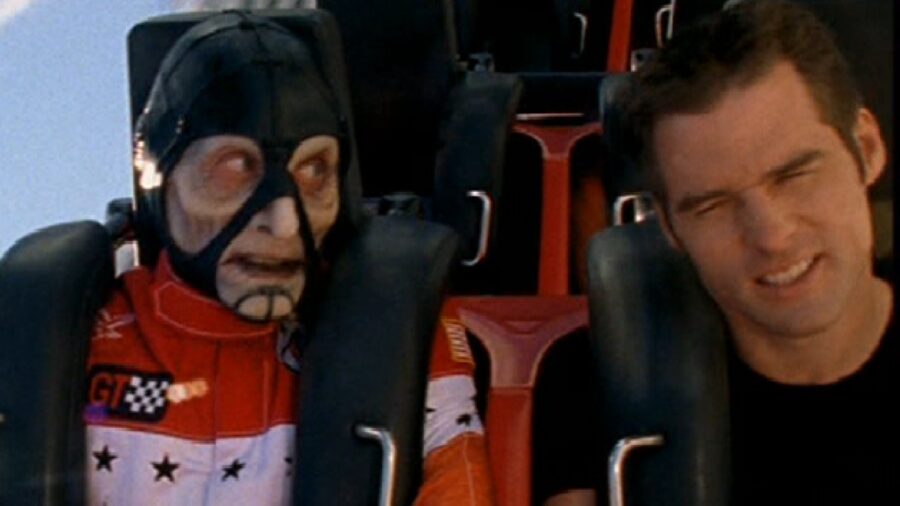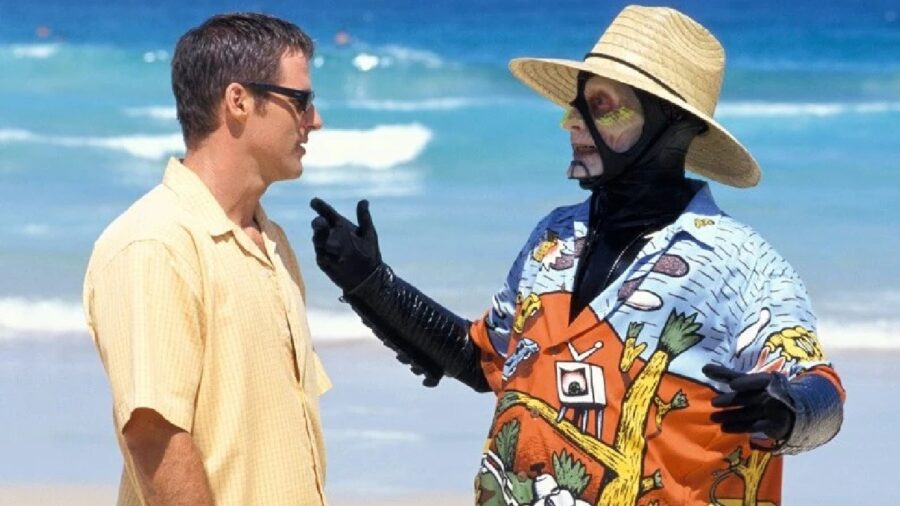By Jonathan Klotz | Updated

Distant landscape may be known as the “show with the puppets,” but it features some of the best writing of any sci-fi series, between John Crichton’s organic growth and Aeryn Sun’s relationship with the ability to transform even the weirdest cerebral intrigues. the narration. That’s the only reason why Distant landscape did so well with Harvey, a version of the villainous Scorpius who only exists in Crichton’s head, a gimmicky character who became a fan favorite despite the obvious limitations.
The Invisible Enemy by John Crichton

First appeared in “Crackers Don’t Matter”, the fourth episode of Distant landscape In season 2, Scorpius’ hallucination is supposed to be part of T’raltixx’s mental manipulations, but Scorpius would then appear again and again in times of great stress. The hallucination even began to cause Crichton to follow certain actions, including not killing the real Scorpius, before finally revealing itself in the human’s mind. The hallucination was the result of a neural chip implanted by Scorpius while he was torturing Crichton; Ironically, the Scorpius clone revealed the truth during another torture session of another alien whom he helped defeat Crichton.
Crichton nicknamed the hallucination of the Scorpion living in his head Harvey, after the James Stewart classic about the invisible rabbit. From then on, Harvey would appear multiple times throughout each season, sometimes as a more visible hallucination than any of the others. Distant landscape the characters could see since he didn’t actually exist, and other times, in Crichton’s mindscape, where he offered helpful advice like Jiminy Cricket in tight leather.
Awesome way to keep Scorpius involved

The writers of Distant landscape made the choice to make Scorpius’ neural implant a version of Scorpius in order to keep the villain involved without his evil plans regularly failing. That way, they could keep Wayne Pygram involved, explore different parts of Crichton as Scorpius reflects, and maintain a sense of danger around the true villain. Harvey may have started out as a mental clone of Scorpius, but he ended up becoming his own character.
Harvey appeared at Crichton in Hawaiian shirts and in a moment that showcased Pygram’s talent, even playing the drums like Ringo Starr. These offbeat appearances caused fans and Crichton to view Harvey as more of an ally than an enemy, and in truth, he was, but only in the same way that the real Scorpius was: to further his own goals. In fact, at the time Distant landscape In its end, Harvey succeeded in achieving his goals and the reason he was set out to do so in the first place, but in keeping with the spirit of the series, it wasn’t quite what he had planned in the first place. season 2.
Distant landscape is the only sci-fi series I can think of that took what could have been a one-off gimmick for one episode and managed to make Harvey a lasting part of the series’ legacy. Stargate SG-1 turned a gimmicky episode into one of the series’ best, but they never included Apophis showing up in a hazmat suit or debating how Easter is celebrated. Distant landscape managed to do a lot with very little, thanks to sharp writing and a talented cast, with Wayne Pygram’s unhinged Harvey the best example of what a little creativity and a willingness to throw out the rules will get you.




